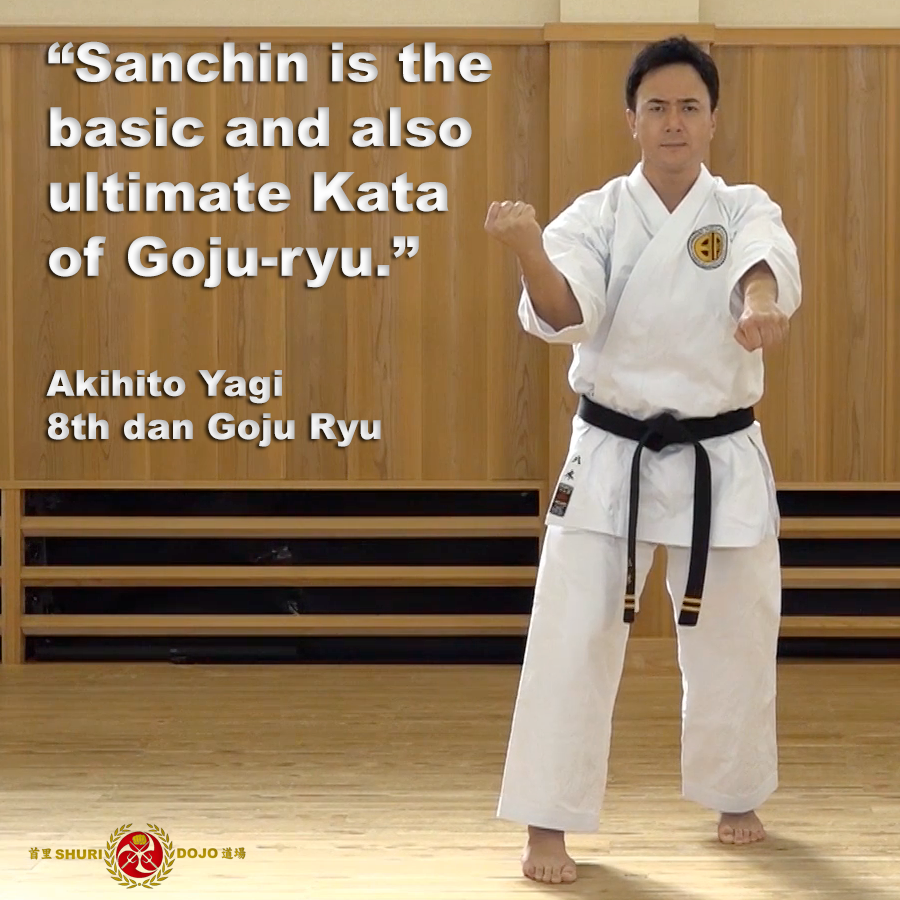
Sanchin (三戦) is a kata of Southern Chinese (Fujianese) origin that is considered to be the core of several styles of traditional karate. It is the basic form of “Tanren – 鍛錬” (training) that Goju-ryu (Uechi-ryu and Isshin-ryu too) basically is built upon, and is the foundation of their karate training.
.
The name Sanchin, meaning “three battles/conflicts/wars” is usually interpreted as the battle to unify the mind, body, and spirit; however, there are other interpretations.
.
Many people teach that Sanchin is about “tightening” the muscles. However, the body should be positioned in such a way that the muscles tighten themselves. It’s all about postural alignment. Toes and knees in, pelvis pushed forward, back straight, shoulders down and back and the chin tucked in. This will naturally tense a large portion of our muscular system.
.
The breathing technique in Sanchin is very important and needs to be synchronized with your movements. It’s not about how tight you can clench your muscles or how loudly you can exhale.
.
As for the overly loud breathing. It’s not necessary. The breathing itself should not have any effect on muscular tension, therefore, should not be a cause of physical harm. If Sanchin is done with incorrect body mechanics, there could be unwanted side effects. Even some that do know how to align their body, do it at such an extreme they cause themselves damage, holding their breath, raising blood pressure, or invoking the Valsalva maneuver (an increase in internal pressure and hypertension).
.
Sanchin is a study of the body, how we bring everything to the center (tanden) and direct our energy from there.
.
There are many other aspects to Sanchin kata and it can take many years of study to truly understand all of its intricacies.
.
Many Okinawan’s view Sanchin for health. By practicing Sanchin daily it helps to keep them strong and healthy. When done properly, undoubtedly it will do just that. ![]()
![]()
.
.
![]() Photo Credit: International Meibukan Goju-ryu & Akihito Yagi
Photo Credit: International Meibukan Goju-ryu & Akihito Yagi
.
